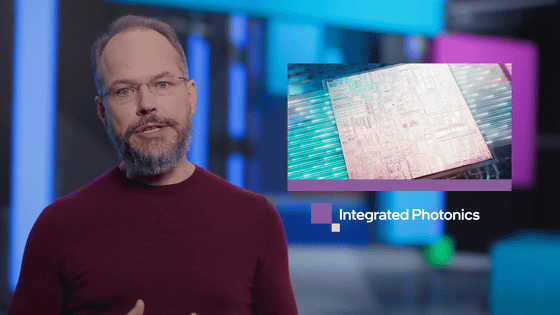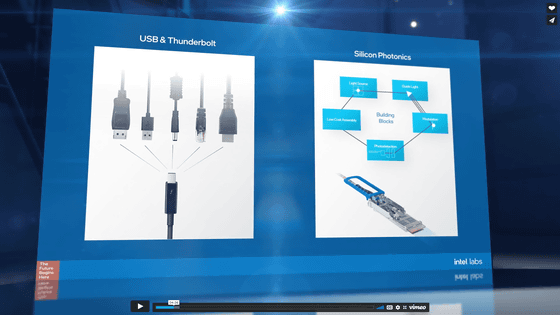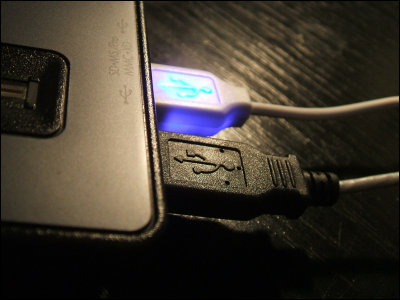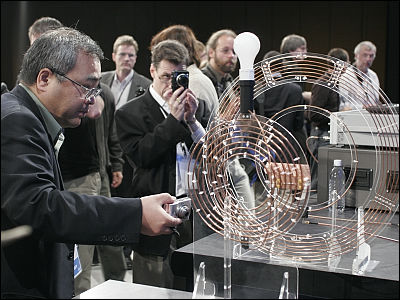Insider explains what kind of problem Intel's advanced research institute 'Intel Labs' is working on

In addition to the division that develops and manufactures products such as processors, Intel has
What is the next big technology breakthrough in 10-20 + years? @IanCutress sat down with Intel Labs director Dr. Richard Uhlig to talk new compute models like quantum and neuromorphic, plus much more: https://t.co/HWECebfXhN pic .twitter.com/xkJpel3uw9
— Intel Technology (@IntelTech) March 3, 2021
The Intel Moonshot Division: An Interview with Dr. Richard Uhlig of Intel Labs
https://www.anandtech.com/show/16515/the-intel-moonshot-division-an-interview-with-dr-richard-uhlig-of-intel-labs
Intel is a semiconductor company known for its Core processor family , but it is also researching not only semiconductors but also pioneering fields such as quantum computing. Normally, the research conducted by companies is based on the premise that 'commercialization can be achieved in 1 to 3 years', but some companies carry out long-span research with an eye on 10 to 20 years ahead. In the case of Intel, 'Intel Labs' is a research institute that specializes in long-term research.
AnandTech, an IT news site, conducted an interview with Dr. Richard Urich, who heads Intel Labs. Dr. Urich led the Intel Labs Systems and Software Research Team from 2013 to 2018, leading extensive research into virtualization technologies, cloud computing systems, software-defined networks, big data analytics, machine learning, artificial intelligence, and more. It is the person who did.

The first question AnandTech struck was, 'Intel Labs is understood to be a research institute that finds next-generation innovation like
According to Dr. Urich, Intel has its own processor development department, and although Intel Labs also prototypes processors and uses fabrication facilities, most research is unrelated to processors. thing. It seems that Intel Labs is mainly engaged in new innovations related to software and attempts to rearrange the system from the level of configuration methods and components.
When asked, 'How big is Intel Labs in terms of budget, number of employees, offices, etc.?', 'About 700 researchers with PhDs in research fields undertaken by Intel Labs. Oregon and California. We have research bases on the west coast of the state, but we also have laboratories in India, China, Germany, Israel, and Mexico. In addition to in-house research, we also work closely with researchers from the world's leading universities. I answered.

Intel Labs is hosting its own event '
AnandTech touched on Intel's sale of its modem business to Apple and asked, 'Are you still working on millimeter-wave communications technology despite the sale of your modem business?' In response, Dr. Urich said, 'Modems are endpoints and are built into devices, but Intel is betting on'building a 5G infrastructure', so not only millimeter-wave communications, but also radio access networks and We are considering everything needed to build a network infrastructure core, etc. '
Apple announces acquisition of Intel's smartphone modem chip business-GIGAZINE

In response to the question 'What is the ratio of software research to hardware research at Intel Labs?', Dr. Urich said, 'Software research is essential for hardware research, so software is two-thirds and hardware is three minutes. It's a ratio of 1 '.' However, he replies, 'Rather than classifying by software or hardware, we think that we are studying'systems' by putting them together.' Also, regarding the question 'Are there any researches that are always kept private?', 'I think that I can try myself by presenting in a first-class place, so basically I publish most of the research. However, there is an exception if you want to keep it secret when commercializing it. '
The most popular technologies from Intel Labs are 'USB' and 'Thunderbolt'. Dr. Urich touched on these successful examples of Intel Labs, with the vision that 'Thunderbolt should integrate all the different IO connector types into one connector so that multiple protocols can be handled in the same way.' It was originally developed. One of my personal successes is virtualization technology. I have been a technician at Intel Labs for 15 years, but very early on virtualization technology. I was doing research on processors and platforms to facilitate virtualization, and that's how Intel Virtualization Technology was born. ' In contrast, regarding the 'deadlocked project', 'It was an idea that both Intel Labs and Intel itself gave up because it was difficult to commercialize a device that can be handled without charging by collecting energy from the environment, although it was successful in the experiment.' Said.

Regarding silicon photonics, which is a technology for integrating elements such as light emitting elements, receivers, and light modulators on a silicon substrate, although it is a technology that is no longer under the umbrella of Intel Labs, Intel Labs is also continuing development. Intel Labs is mainly working on 'how to integrate silicon photonics into a package', and after prototyping the innovation, he said that he plans to work closely with the product department to commercialize it.
Regarding these efforts by Intel Labs, Dr. Urich commented, 'We will continue to hold Intel Labs Day every year and focus on publicizing our efforts outside the company.' He concludes with expectations for future events.
Related Posts:







